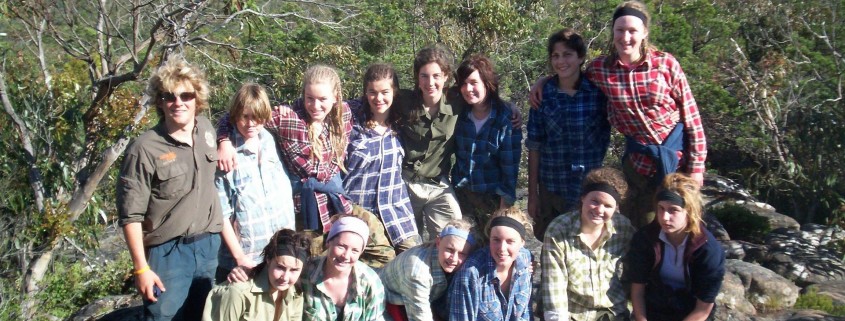What is Outdoor Education?
Outdoor Education (OE) is a study subject in schooling that focuses on learning about self, others and the environment.
Outdoor Education (OE)
- incorporates a number of learning outcomes from other subjects such as Health and Physical Education, Geography, History, Science, Mathematics, English and Art
- is uniquely placed to teach cross disciplinary components of the curriculum such as Aboriginal perspectives of land and country, conservation and sustainability
- is the subject which is best placed to teach self reliance, interdependence and leadership, the development of an adventurous spirit, managing personal risks, safe journeys in nature, the value of life-long outdoor recreation for enjoyment, health and well-being, understanding nature through direct experience and studying, and for developing deeper human-nature relationships.
Other subjects can use ‘outdoor education’ (OE) or ‘education outside the classroom’ (EOtC) methodologies to enhance learning in all subjects in the curriculum by
- Incorporating direct experiences with natural and built environments increases engagement of students and understanding of a range of subject material
- Supplementing classroom teaching can provide a memory enhancing focal point
- Contributing to the outcomes possible through OE ( the subject) such as personal development, interdependence, conservation, sustainability, and understanding nature through direct experience and study
Outdoor Education within Health and Physical Education
Outdoor Education is uniquely placed to deliver a range of Health and Physical Education learning outcomes by:
- Providing direct personal contact with nature (the outdoors)—in ways that promote enjoyment of outdoor activity and nature. Such enjoyment can be the basis for on-going outdoor recreation throughout life
- Developing competence and safety management in the Australian outdoors—for all Australians, and being especially relevant for those in urban settings or born overseas
- Enabling socially critical perspectives on human to nature relationships—through the provision of alternate lived outdoor experiences that assist students to reflect back upon less healthy aspects of their everyday living.




